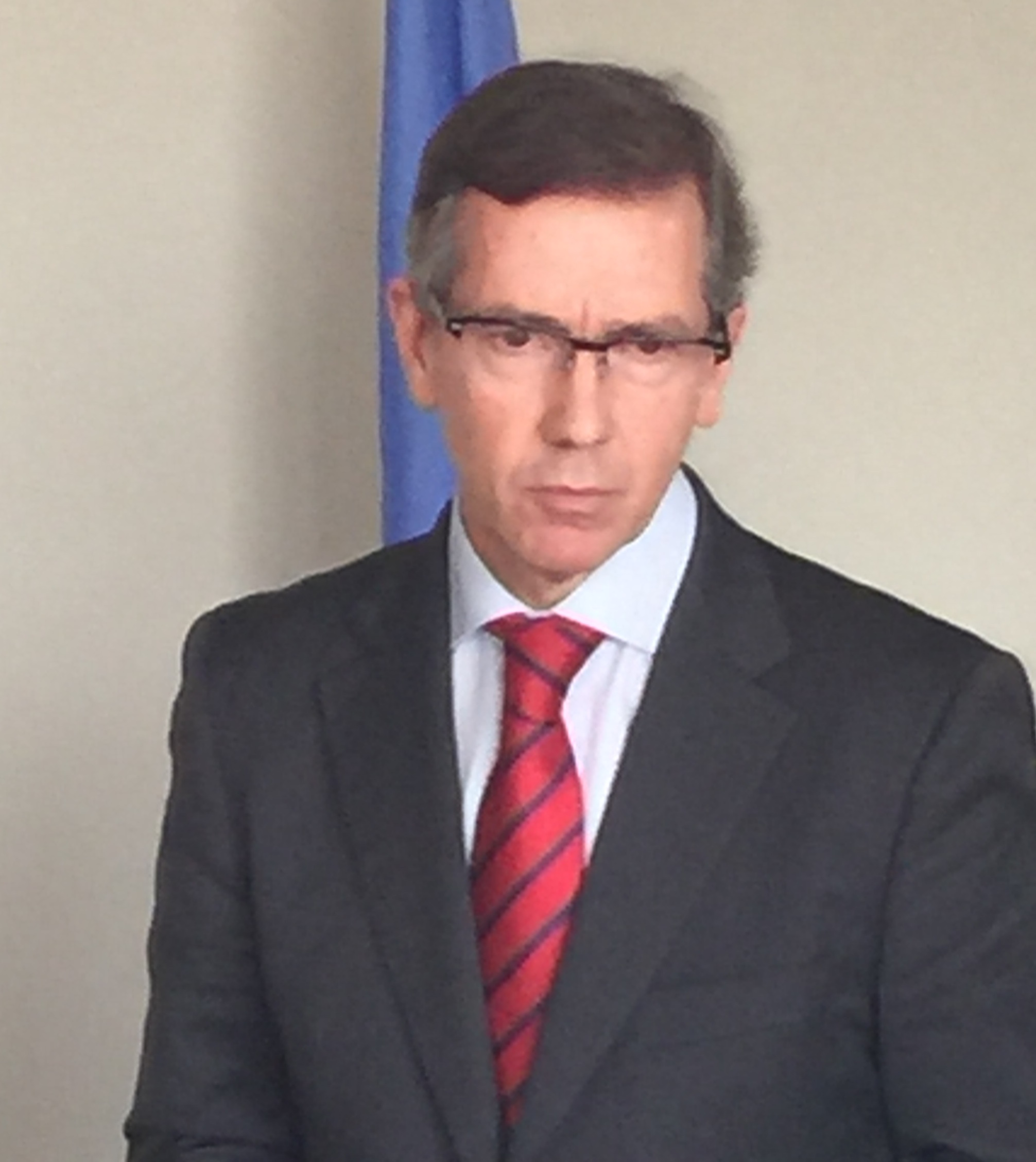By John Hamilton.

London, 21 October 2015:
Libya’s political stand-off means that most of National Oil . . .[restrict]Corporation’s increasingly well-developed investment plans for the country’s oil and gas sector will remain on hold – although not all. Despite an almost total lack of budget, a London conference has been told, one large offshore gas project financed by Italy’s Eni is advancing rapidly.
The past four years have been a period of intense frustration for NOC and its international partners as persistent violence and political mayhem have both cut oil production to one-quarter of the 1.6m b/d maximum while also making it impossible to implement exploration and development plans.
NOC’s inability to make progress on a practical level has not stopped it from working up new investment schemes, which it has presented to IOCs in increasing detail over the past several years.
A large delegation led by the Tripoli-based chairman Mustafa Sanalla set out some of these to International Research Network’s New Libya Oil & Gas Forum on 19 and 20 October in London – with the understanding that they could advance once a unity government was in place.
The Tobruk-based House of Representative’s decision on 19 October to reject the proposal put forward by UN special representative Bernardino Leon meant, however, that NOC’s frustration will continue.
The arrival of Sanalla’s delegation in London was controversial as the Tobruk government has repeated tried and failed to dismiss him and has also threatened legal action against international companies that engage with NOC under his management. So far these have proved empty threats.
Sanalla, in his opening remarks, said that “NOC will continue to work from its legally-registered headquarters in Tripoli. NOC’s position is neutral. We do not receive any external directors and orders. We are independent from both sides and will continue to work in this way until the establishment of the new Government of National Accord.”
Given the necessary preconditions of security, budgets and legitimate sovereign authority, the NOC chairman’s plan includes the rewriting of the existing Petroleum Law which dates back to 1955 and the upgrading the model EPSA contract to incentivise foreign investment in exploration.
A committee has been working on these proposals since before the fall of Colonel Muammar Qaddafi. Describing a $10 billion investment programme to be completed in five years he spoke of Mellitah Oil & Gas’s current offshore field development – which he said is moving forward quickly thanks to strong support from Eni – the Medco Energy-NOC joint venture Nafusa Oil Operation’s plan to develop an initial 50,000 b/d oil production in the Ghadames Basin by 2018 and Arabian Gulf Oil Company’s (Agoco) plans to boost output from its existing fields (for more on this, see below).
Sanalla also outlined proposals for work on undeveloped marginal oil and gas fields and the application of both Improved Oil Recovery (IOR) and Enhanced Oil Recovery (EOR) techniques to increase recovery from large existing fields. During more peaceful times, he said, the Qaddafi regime consistently held back approval of such projects on resource nationalist grounds.
With every year of inaction that passes, the list of projects is growing. Some will be familiar to the international oil executives who led the return to Libya after international sanctions against the former regime were lifted in the late 1990s and early 2000s. Others are new.
According to senior technical advisor Khalifa Amru, 63 potential projects, including new field developments and the revamping, rehabilitation and re-development of mature fields, could contribute a further 600,000 b/d of production. He said that NOC wished to drill 750 development wells over the next five years.
Given the right conditions, IOCs, oil service companies and other sector participants will flood back into Libya, ready to compete for projects. BP vice-president of exploration for Africa Jasper Peijs told the conference that BP has still retained its commitments to drill 12 wells in the onshore Ghadames Basin and five wells in the deep offshore Sirte Basin where it believes prolific onshore plays extend. For the time being its contracts remain under force majeure. “We have three prospects ready to drill just waiting for the moment when we can safely start a drilling programme,” said Peijs.
According to NOC exploration manager Bashir Garea, Libya is currently producing 436,000 b/d of oil of which 55% is coming from Agoco’s fields, 12% from Sirte Oil Company and smaller percentages from other fields. Gas production is currently 2,246 mscf/d, 74% of which comes from fields linked to the Mellitah complex.
Eni repaid with gas for financing offshore development
Libyan oil executives presented three major upstream project proposals at the forum. These were Mellitah Oil & Gas’ offshore Bahr Essalam development, Nafusa Oil Operation’s onshore Gadhames Basin development and Agoco’s plans to develop existing producing and non-producing fields.
The country’s disastrous budget and security situation means that in theory none of these proposals should have any chance of advancing.
National Oil Corporation (NOC) chairman Mustafa Sanalla confirmed that all exploration programmes had been cancelled for 2015 because there is no budget for them. However, while prospects for the Nafusa and Agoco developments are still uncertain, Mellitah Oil & Gas’s development of two additional structures in the large offshore gas field is advancing rapidly.
The Bahr Essalam project is going ahead firstly because the project is being supported from Malta – circumventing the otherwise intractable security problems and secondly because Eni, NOC’s joint venture partner, is meeting all of the cash calls. Sanalla said that NOC was reimbursing Eni “in kind” by allowing it to lift additional quantities of both oil and gas to compensate it for covering NOC’s share of the investment. He confirmed that this arrangement is entirely legal and supported by the terms of the existing EPSA.
Agoco chairman Mohamed Ben Shitwan – whose headquarters and main operations are located in Cyrenaica but who remains loyal to the central NOC management – said that a combination of investments in new surface facilities plus the introduction of IOR and EOR techniques could lead to a doubling or tripling of its reserves. The company has six discovered but undeveloped fields which could be put into production. He said it would like to drill 93 wells in the next ten years. It is also part way through the installation of solar power generation units at the Sarir field, which could be completed by 2017, enabling another 130,000 b/d of production.
Nafusa Oil Operations chairman Mohamed Jamaleddin said that a “fast track strategy” to bring the North Hamada fields into production by late 2017 or early 2018 would be “very challenging. He said the oil, condensate and gas from the fields would be tied into the existing pipelines from MOG’s El-Feel (Elephant) and Wafa fields to the Mellitah terminal.
John Hamilton is a contributing editor at African Energy and a director of Cross-border Information [/restrict]








